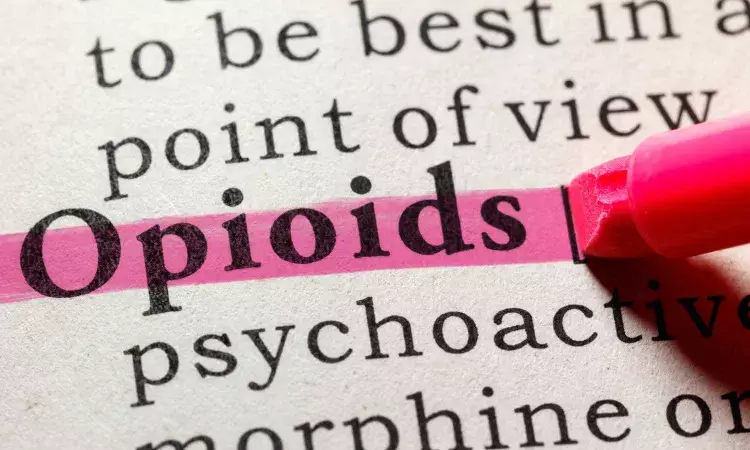- Home
- Medical news & Guidelines
- Anesthesiology
- Cardiology and CTVS
- Critical Care
- Dentistry
- Dermatology
- Diabetes and Endocrinology
- ENT
- Gastroenterology
- Medicine
- Nephrology
- Neurology
- Obstretics-Gynaecology
- Oncology
- Ophthalmology
- Orthopaedics
- Pediatrics-Neonatology
- Psychiatry
- Pulmonology
- Radiology
- Surgery
- Urology
- Laboratory Medicine
- Diet
- Nursing
- Paramedical
- Physiotherapy
- Health news
- Fact Check
- Bone Health Fact Check
- Brain Health Fact Check
- Cancer Related Fact Check
- Child Care Fact Check
- Dental and oral health fact check
- Diabetes and metabolic health fact check
- Diet and Nutrition Fact Check
- Eye and ENT Care Fact Check
- Fitness fact check
- Gut health fact check
- Heart health fact check
- Kidney health fact check
- Medical education fact check
- Men's health fact check
- Respiratory fact check
- Skin and hair care fact check
- Vaccine and Immunization fact check
- Women's health fact check
- AYUSH
- State News
- Andaman and Nicobar Islands
- Andhra Pradesh
- Arunachal Pradesh
- Assam
- Bihar
- Chandigarh
- Chattisgarh
- Dadra and Nagar Haveli
- Daman and Diu
- Delhi
- Goa
- Gujarat
- Haryana
- Himachal Pradesh
- Jammu & Kashmir
- Jharkhand
- Karnataka
- Kerala
- Ladakh
- Lakshadweep
- Madhya Pradesh
- Maharashtra
- Manipur
- Meghalaya
- Mizoram
- Nagaland
- Odisha
- Puducherry
- Punjab
- Rajasthan
- Sikkim
- Tamil Nadu
- Telangana
- Tripura
- Uttar Pradesh
- Uttrakhand
- West Bengal
- Medical Education
- Industry
Opioid prescriptions in ED linked to small increases in future opioid use and hospitalizations: Study

Opioid prescriptions in the emergency department (ED) were associated with small increases in later opioid prescriptions and hospital admissions, found new research published in CMAJ (Canadian Medical Association Journal).
To understand the relationship between opioid prescribing in the ED and subsequent harm, researchers looked at opioid prescribing at all Alberta EDs from 2010 to 2020. Of the more than 13 million visits, 689 074 patients (5.3%) filled an opioid prescription. The researchers found that opioid prescriptions did not increase the risk of death or overdose, but that opioid-treated patients were more likely than untreated controls to require a hospital admission (16.4% v. 15.1%) or to receive additional opioid prescriptions (4.5% v. 3.3%) in the year following the ED visit.
“Emergency physicians face growing pressure to curtail opioid prescribing but must manage severe pain and treat opioid-tolerant patients who can no longer access opioids from their physicians,” writes Dr. Grant Innes, professor of emergency medicine, Cumming School of Medicine, University of Calgary, Calgary, Alberta, with coauthors. “There is little research to guide them.”
The researchers concluded that although single opioid prescriptions are not risk free, the likelihood of harm is low and unlikely to outweigh the benefit of treating severe pain. Their findings also show that patient characteristics influence risk and that adverse outcomes are more likely with opioid-naive patients, older patients, patients with multiple health conditions, and frequent ED users.
“Physicians should understand the concept of patient-specific incremental risks when prescribing opioids for acute pain and prescribe cautiously within high-risk groups,” the authors conclude.
They also suggest that future research should investigate the effects of different opioid drugs, which may not be equal, and identify health conditions where opioid risk is more or less severe.
“Research and guidance in this area is long overdue, and only filling this research gap will allow acute pain prescribers and their patients to consider how best to ameliorate pain while minimizing potential harms related to opioid prescription,” writes Dr. Donna Reynolds, a family physician and acting co-chair of the Canadian Task Force on Preventive Health Care, with coauthors in a related commentary.
Reference:
Jake Hayward, Rhonda J. Rosychuk, Andrew D. McRae, Aynharan Sinnarajah, Kathryn Dong, Robert Tanguay, Lori Montgomery, Andrew Huang and Grant Innes, Effect of emergency department opioid prescribing on health outcomes, CMAJ, https://doi.org/10.1503/cmaj.241542
Dr Kamal Kant Kohli-MBBS, DTCD- a chest specialist with more than 30 years of practice and a flair for writing clinical articles, Dr Kamal Kant Kohli joined Medical Dialogues as a Chief Editor of Medical News. Besides writing articles, as an editor, he proofreads and verifies all the medical content published on Medical Dialogues including those coming from journals, studies,medical conferences,guidelines etc. Email: drkohli@medicaldialogues.in. Contact no. 011-43720751


